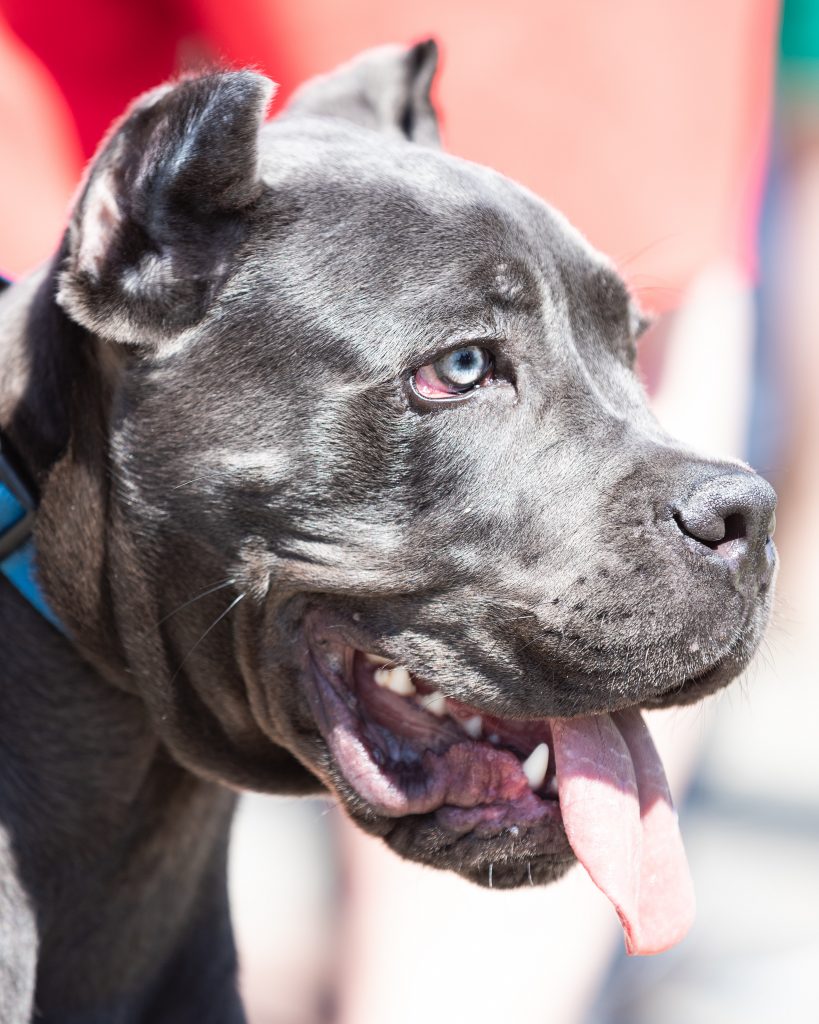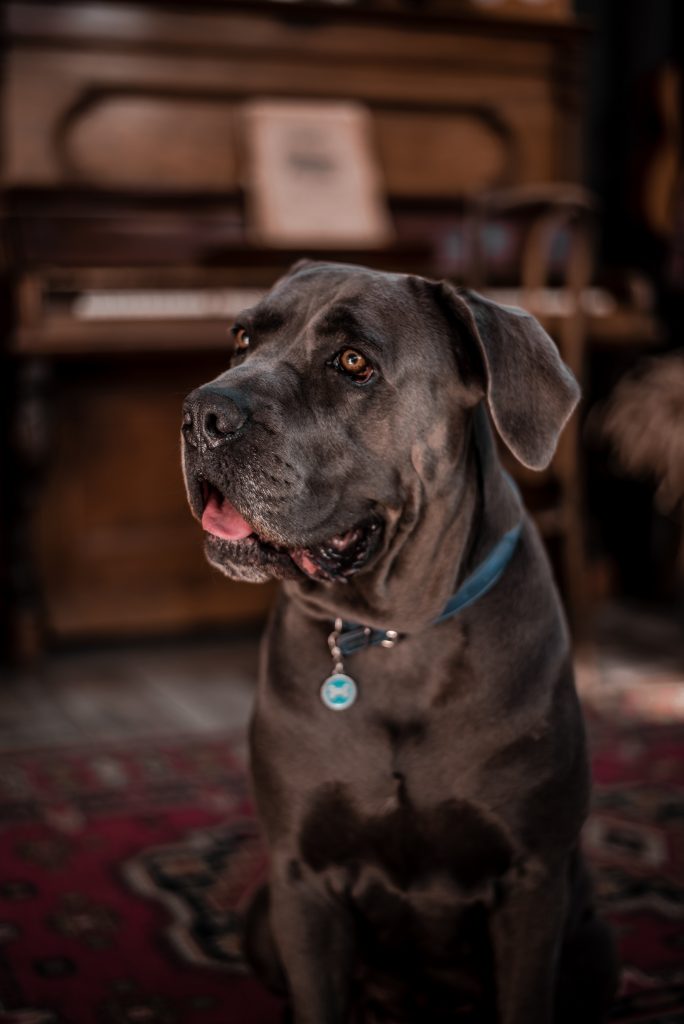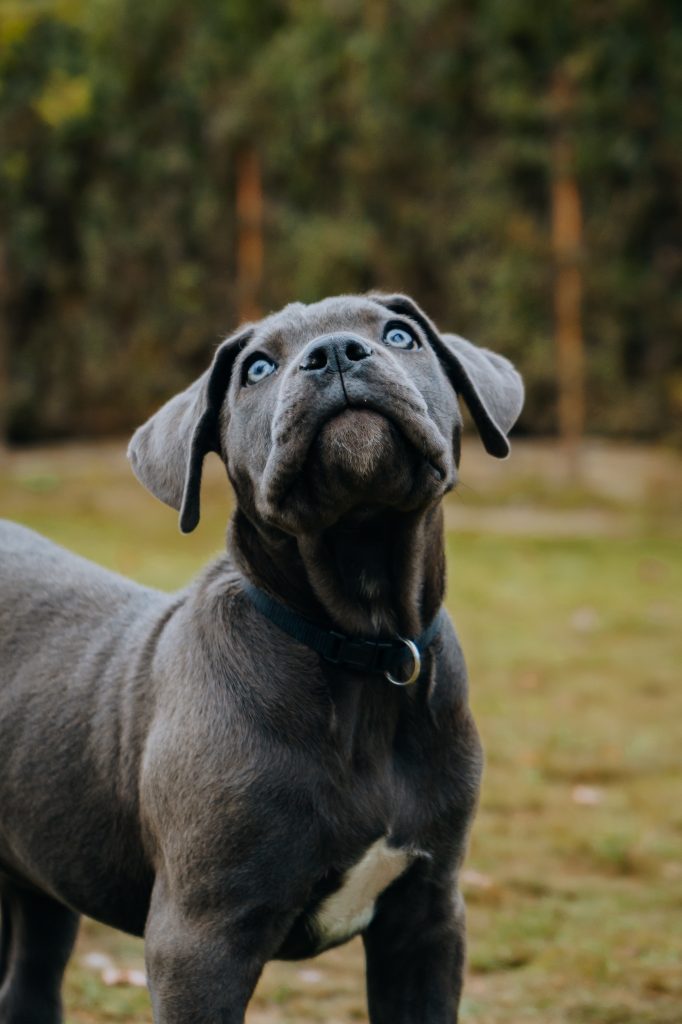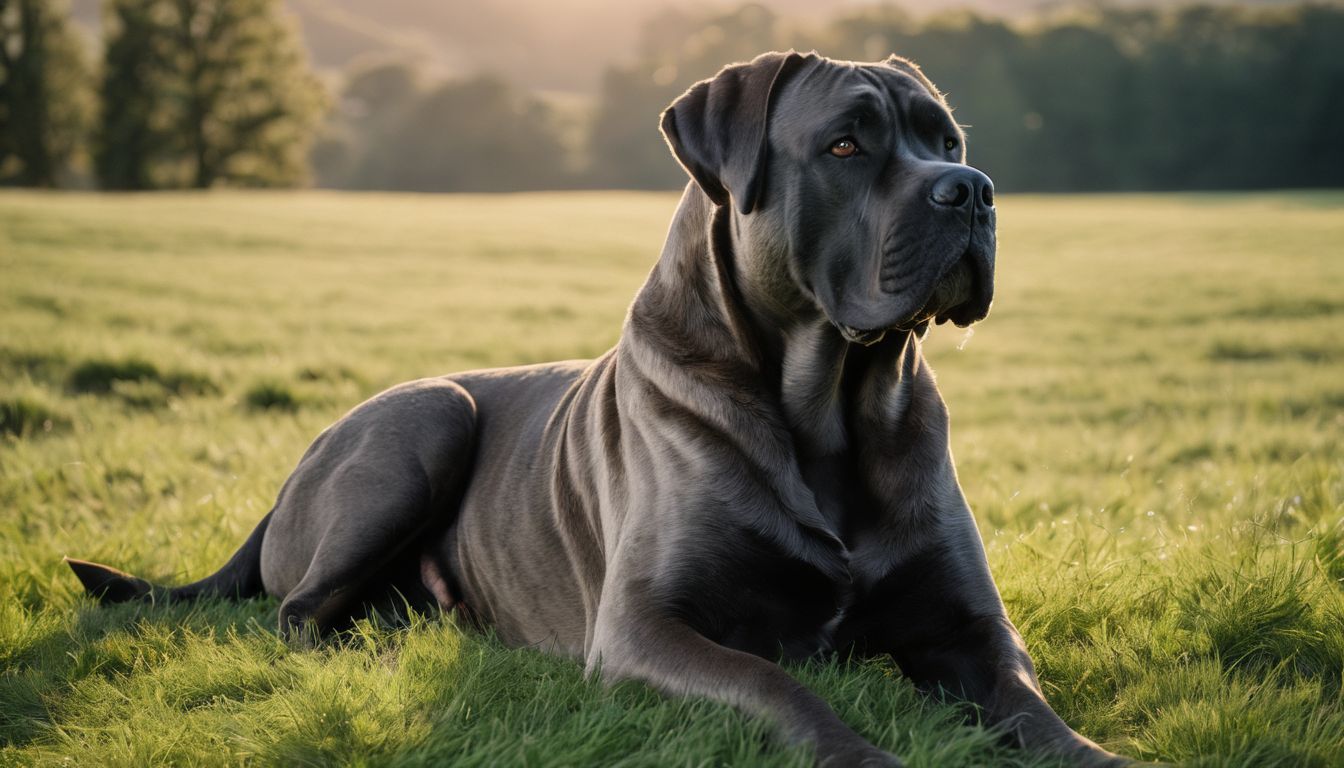Are you a proud Cane Corso owner, wondering how long does cane corso live? The average lifespan for this large Italian breed is between 9 and 12 years. In this article, we explore the factors affecting their longevity, from genetic concerns to dietary needs and common health issues.
Read on to learn how you could potentially enhance your loyal companion’s life expectancy!

Key Takeaways
- The average lifespan of a Cane Corso is between 9 and 12 years, but with proper care, they can live longer.
- Genetic factors play a role in their health, so it’s important to know about their family history before adopting.
- Providing a balanced diet and regular exercise is crucial for increasing their lifespan.
- Regular veterinary check – ups help detect and manage common health issues like hip dysplasia, skin allergies, epilepsy, and gastric torsion.
Factors Affecting Cane Corso Lifespan
Genetics, diet and exercise, seasonal shedding and grooming, and hydration all play a role in determining the lifespan of a Cane Corso.
Genetics
Genes play a big part in the life of a Cane Corso. These dogs can have health problems linked to their genes. For instance, some may get hip dysplasia or skin allergies. The risk goes up if their parents had these diseases too.
This is why it’s good to know about a puppy’s family before you bring him home. It helps predict possible future health issues and plan ahead for better care as your dog grows older.
Diet and Exercise
Proper diet and regular exercise are crucial for increasing the lifespan of your Cane Corso. Feed them a balanced and nutritious diet that is appropriate for their age and size. Make sure to provide high-quality dog food that includes essential vitamins, minerals, and proteins.
Avoid overfeeding them as obesity can lead to various health problems.
In terms of exercise, Cane Corsos need daily physical activity to keep them fit and mentally stimulated. Take them for long walks or jogs, play fetch in the backyard, or engage in interactive games like hide-and-seek.
Regular exercise helps maintain their weight, prevents boredom, and supports overall well-being.
Seasonal Shedding and Grooming
Cane Corsos have a short and dense coat that requires regular grooming to keep it healthy. They shed moderately throughout the year, but during seasonal transitions, they may experience heavier shedding.
To manage their shedding, it is important to brush them regularly with a bristle brush or deshedding tool to remove loose fur and prevent matting. Additionally, bathing should be done as needed using a gentle dog shampoo to maintain their coat’s health and cleanliness.
Proper grooming not only helps in managing shedding but also allows you to bond with your Cane Corso while keeping their coat looking its best.
Hydration
Proper hydration is important for the overall health and longevity of Cane Corsos. Like all dogs, they need access to clean and fresh water at all times. Dehydration can lead to serious health problems and even shorten their lifespan.
Make sure to provide your Cane Corso with enough water throughout the day, especially during hot weather or after exercise. Keeping them properly hydrated will help keep their organs functioning well and contribute to their overall well-being.

Common Health Issues and Lifespan
Cane Corsos may be prone to health issues such as hip dysplasia, skin allergies, and gastric torsion. Understanding these issues can help ensure a longer lifespan for your beloved pet.
Read more to learn how you can care for your Cane Corso’s health and well-being.
Hip Dysplasia
Hip dysplasia is a common health issue in Cane Corsos. It occurs when the hip joint doesn’t develop properly, leading to pain and difficulty walking. Cane Corsos are prone to this condition due to their large size and genetics.
It’s important for dog owners to be aware of the signs of hip dysplasia, such as limping or reluctance to exercise. Regular vet check-ups can help detect this condition early on. Treatment options include medication, physical therapy, and surgery in severe cases.
By providing proper care and monitoring your Cane Corso’s weight and activity levels, you can help prevent or manage hip dysplasia and ensure a longer and healthier lifespan for your beloved pet.
Ectropion and Entropion
Ectropion and entropion are eye conditions that can affect Cane Corsos. Ectropion is when the eyelid rolls outward, causing the inner surface to be exposed. Entropion, on the other hand, is when the eyelid rolls inward, causing the lashes to rub against the eye.
Both conditions can lead to irritation, redness, and increased tear production. While these conditions may not directly impact a dog’s lifespan, they can cause discomfort and potentially lead to more serious eye problems if left untreated.
If you notice any signs of ectropion or entropion in your Cane Corso, it’s important to seek veterinary care for proper diagnosis and treatment options.
Epilepsy
One health issue that can affect the lifespan of Cane Corsos is epilepsy. Epilepsy is a neurological condition characterized by recurring seizures. Seizures can vary in intensity and duration, affecting the dog’s overall well-being.
While not all Cane Corsos will develop epilepsy, it is important to be aware of this potential health concern. Regular veterinary check-ups and monitoring for any signs or symptoms of seizures can help manage the condition and provide appropriate treatment if needed.
Ensuring a safe environment for your Cane Corso, with minimal stressors or triggers that could potentially induce seizures, can also contribute to their overall health and longevity.
Skin Allergies
Cane Corsos are prone to skin allergies, which can cause discomfort and irritation for your furry friend. These allergies can be triggered by various factors such as environmental allergens, food ingredients, or even certain fabrics.
Symptoms of skin allergies in Cane Corsos may include itching, redness, rashes, hair loss, and ear infections. It’s important to work closely with your veterinarian to identify the specific allergen causing the reaction and develop a treatment plan.
This may involve dietary changes, medication to manage symptoms, regular grooming routines to keep their skin clean and healthy, and avoiding exposure to known triggers. By addressing these allergies promptly and providing the necessary care, you can help your Cane Corso live a more comfortable and happy life.
Gastric Torsion
Gastric torsion, also known as bloat, is a serious health issue that can affect Cane Corsos. It occurs when the stomach fills with gas and twists on itself, causing a blockage. This condition can be life-threatening if not treated promptly.
Symptoms of gastric torsion include restlessness, pacing, unsuccessful attempts to vomit, swollen abdomen, and difficulty breathing. Large or deep-chested dog breeds like the Cane Corso are more prone to developing this condition.
Immediate veterinary intervention is crucial to relieve the bloat and prevent further complications. Regular exercise and smaller meals throughout the day instead of one large meal can help reduce the risk of gastric torsion in Cane Corsos.

Care and Considerations for Each Life Stage
From puppyhood to the senior years, this section covers all the important care and considerations for each stage of your Cane Corso’s life. Don’t miss out on valuable tips and advice!
Puppy Stage
During the puppy stage, it’s important to provide your Cane Corso with proper care and attention. This is a crucial period for their development and lays the foundation for their health and longevity.
Make sure to feed them a balanced diet that meets their nutritional needs, as this will support healthy growth. Regular exercise is also essential to keep your puppy active and prevent obesity.
Additionally, it’s important to socialize your puppy early on, exposing them to different people, animals, and environments. This will help them develop good behavior and become well-rounded dogs.
Adult Stage
During the adult stage, which typically starts around 2 years old, Cane Corsos are fully grown and have reached their mature size. They are generally a healthy breed during this stage of life.
However, it is important to continue providing them with proper nutrition and regular exercise to maintain their overall health and weight. Adult Cane Corsos still require mental stimulation and social interaction to keep them happy and fulfilled.
Regular vet check-ups should be scheduled to monitor their health status and catch any potential issues early on. Preventive care, such as vaccinations and parasite prevention, should also be kept up-to-date to ensure their well-being.
Senior Stage
During the senior stage of a Cane Corso’s life, it is important to provide them with extra care and attention. As they age, their energy levels may decrease, so it’s essential to adjust their exercise routine accordingly.
Regular vet check-ups become even more crucial during this stage to monitor for any health issues that may arise. It’s also important to focus on their nutrition and ensure they are getting a balanced diet that supports their aging bodies.
With proper care and attention, Cane Corsos can live a happy and healthy life well into their golden years.
Therapy and Medical Care
Caring for your Cane Corso’s health is very important to ensure they live a long and happy life. Regular check-ups with the vet are crucial, as they can catch any potential health problems early on.
It’s also important to provide proper therapy and medical care throughout their life stages. This includes things like vaccinations, parasite prevention, and dental care. By staying proactive in their healthcare, you can help increase your Cane Corso’s lifespan and keep them healthy for years to come.
Remember that every dog is unique, so it’s essential to work closely with your veterinarian to create a personalized healthcare plan for your Cane Corso. Regular therapy visits can be beneficial as well, helping with mental stimulation and promoting overall well-being.
With the right combination of medical care and therapy, you can give your furry friend the best chance at a long and healthy life.
Tips to Increase Cane Corso Longevity
To increase the longevity of your Cane Corso, provide them with proper nutrition, regular exercise and mental stimulation, regular vet check-ups for preventive care, and consider their quality of life at each stage.
Proper nutrition
Proper nutrition is crucial for increasing the lifespan of your Cane Corso. Here are some important factors to consider:
- Provide a balanced diet that includes high-quality protein sources, such as meat.
- Avoid overfeeding and monitor their weight to prevent obesity, which can lead to health issues.
- Feed them a diet rich in essential nutrients, including vitamins and minerals.
- Consult with a veterinarian to determine the appropriate portion sizes and feeding schedule for your Cane Corso’s age, size, and activity level.
- Consider incorporating supplements or specialized diets if your Cane Corso has specific nutritional needs or health conditions.
Regular exercise and mental stimulation
Regular exercise and mental stimulation are essential for maintaining the overall health and happiness of your Cane Corso. Here are some tips to ensure your furry friend gets enough physical activity and mental engagement:
- Take them for daily walks or jogs to help them burn off energy.
- Engage in interactive play sessions, such as fetch or tug-of-war.
- Consider enrolling them in obedience training classes or agility courses to keep their minds sharp.
- Provide puzzle toys and treat-dispensing toys to challenge their problem-solving skills.
- Incorporate scent games into their routine, like hide-and-seek with treats or toys.
- Set up playdates with other well – behaved dogs to promote socialization and exercise.
- Explore different environments during walks to provide new smells and sights for mental stimulation.
Regular vet check-ups
It’s important to schedule regular vet check-ups for your Cane Corso. Here are some reasons why:
- Vets can catch health problems early, increasing the chances of successful treatment.
- They can provide vaccinations and preventive care to keep your dog healthy.
- Regular check-ups help monitor your Cane Corso’s weight, dental health, and overall well-being.
- Vets can give you advice on nutrition, exercise, and any specific care needs for your Cane Corso breed.
- They can also address any concerns or questions you may have about your dog’s health.
Preventive care
To help increase the lifespan of your Cane Corso, it’s important to provide preventive care. Here are some tips to keep in mind:
- Regular vet check-ups: Take your Cane Corso for regular check-ups with the veterinarian. This will help catch any potential health issues early.
- Vaccinations: Make sure your dog is up to date on all necessary vaccinations. This will help protect them from common diseases and illnesses.
- Parasite prevention: Use flea and tick prevention products regularly to keep your Cane Corso protected from these pesky parasites. Also, make sure they are on a heartworm prevention medication.
- Dental care: Brush your dog’s teeth regularly or provide dental treats to help maintain their oral health. This can prevent gum disease and other dental problems.
- Balanced diet: Feed your Cane Corso a balanced diet that meets their nutritional needs. Consult with your vet to determine the right type and amount of food for your dog.
- Exercise and mental stimulation: Ensure that your Cane Corso gets regular exercise and mental stimulation. This includes daily walks, playtime, and interactive toys or puzzles.
- Weight management: Keep an eye on your dog’s weight and make sure they stay within a healthy range. Obesity can lead to various health problems, so monitor their diet and exercise accordingly.
Quality of life considerations
To ensure a long and healthy life for your Cane Corso, it’s important to take into account the following quality of life considerations:
- Provide a comfortable living environment with enough space for exercise and play.
- Offer a balanced and nutritious diet tailored to your Cane Corso’s specific needs.
- Give them regular opportunities for physical exercise to keep them mentally and physically stimulated.
- Engage in positive training methods to foster a strong bond and promote good behavior.
- Provide regular veterinary care, including vaccinations, check-ups, and preventive treatments for common health issues.
- Keep their living area clean and free of hazards to prevent accidents or injury.
- Spend quality time bonding and socializing with your Cane Corso to prevent boredom and loneliness.
- Create a routine that includes mental stimulation activities such as puzzle toys or training sessions.
- Provide appropriate grooming care, such as regular brushing, nail trimming, and dental care.
- Ensure they have access to fresh water at all times to maintain proper hydration levels.

Conclusion
In conclusion, Cane Corsos have an average lifespan of 9 to 12 years. While this may be shorter compared to smaller dog breeds, with proper care and attention, they can live up to 15 years or more.
Factors such as genetics, diet, exercise, and regular veterinary check-ups play a crucial role in increasing their longevity. So if you want your Cane Corso to live a long and happy life, make sure to provide them with the best possible care.
FAQs
1. How long do Cane Corso dogs typically live?
Cane Corso dogs, also known as Italian mastiffs, have an average lifespan of 10 to 12 years. But how long they live can change based on many factors.
2. What are the factors affecting the longevity of a Cane Corso?
The life expectancy or longevity of Cane Corsos depends on their health, care, and even their role late in life like companion dog or guard dog.
3. Can I help my Cane Corso live longer?
Yes! Good maintenance and care can boost your Cane Corso lifespan. This includes a healthy diet, regular vet check-ups and daily exercise for your large breed pet.
4. Do all large breed dogs like the Italian Mastiff have similar lifespans?
No two breeds are just alike when it comes to longevity. While size does matter – small dogs often outlive big ones – breed-specific issues also play a part in how long a dog lives.
5.What kind of work was the Cane Corso bred for?
The Italian-bred canine was created for tasks such as hunting large game, cattle herding and livestock protection due to its strong temperament.


